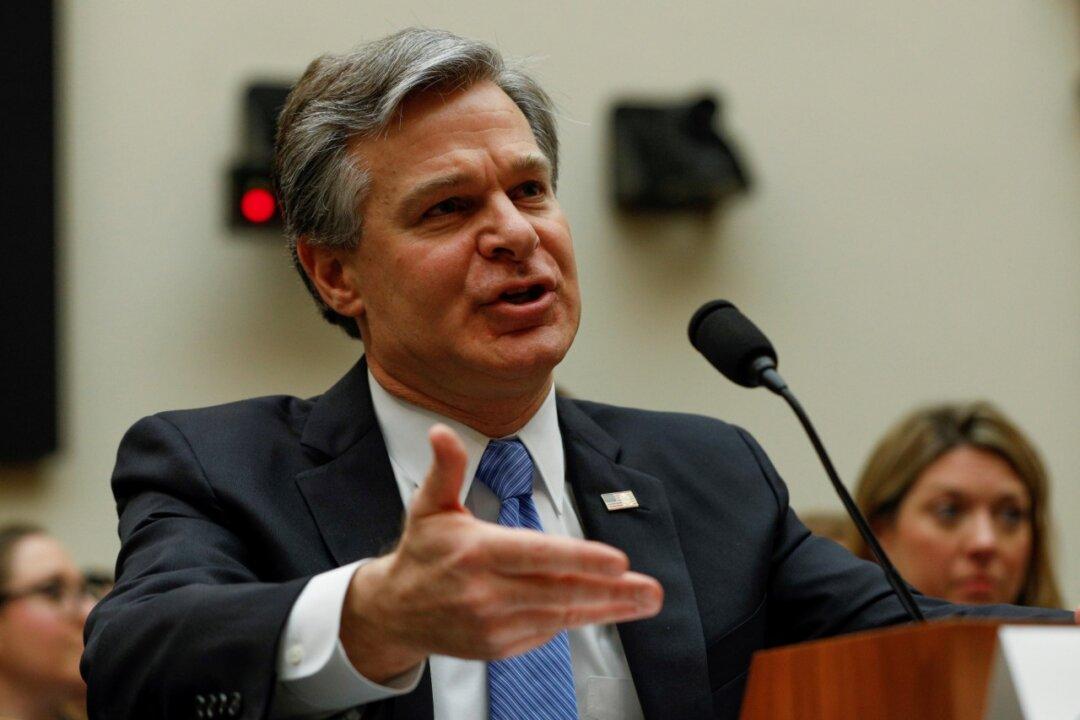The Federal Bureau of Investigation (FBI) is opening a new China-related counterintelligence case about once every 10 hours as it pushes back against Beijing’s expansive campaign to steal American intellectual property (IP) and influence policymakers, FBI director Christopher Wray said in a speech on July 7.
Wray warned that Beijing’s counterintelligence and economic espionage operations are the “greatest long-term threat” to the United States’ economic and national security.





